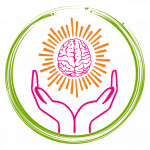
BEHAVIORAL SKILLS TRAINING
Behavioral Skills Training and Personality Enhancement Programs for Schools, Colleges, Organizations and Corporates.
- Improved self-awareness:
- Improved emotional regulation
- Improved communication skills
- Increased confidence
- Improved problem-solving skills
- Better decision-making
- Increased motivation
- We Help You To Help Yourself.
Behavioral skills training and personality enhancement programs
Behavioral skills training and personality enhancement programs are designed to help individuals improve specific skills and personal characteristics. These programs are often used in a variety of settings, including schools, businesses, and mental health clinics.
Behavioral skills training programs focus on teaching individuals specific behaviors and coping strategies to help them manage difficult situations and emotions. For example, anger management programs help individuals learn how to control their temper and respond to challenging situations in a constructive manner.
Personality enhancement programs focus on helping individuals improve their personal characteristics and traits, such as confidence, assertiveness, and communication skills. These programs may involve a combination of group therapy, individual counseling, and practical exercises to help individuals develop and practice new skills.
Both behavioral skills training and personality enhancement programs are often delivered in a structured format, with a set curriculum and goals. They may involve individual or group sessions, and may be led by trained therapists, teachers, or coaches.
The effectiveness of these programs depends on several factors, including the individual’s motivation, the quality of the program, and the support provided during and after the program. Regular follow-up and reinforcement of new skills are also important to maintain progress and prevent relapse.
In conclusion, behavioral skills training and personality enhancement programs are designed to help individuals improve specific skills and personal characteristics. These programs may involve individual or group sessions, and may be led by trained therapists, teachers, or coaches. The effectiveness of these programs depends on several factors, including the individual’s motivation, the quality of the program, and the support provided during and after the program.
Behavioral skills training and personality enhancement programs are commonly used in schools, colleges, organizations, and corporate.
Behavioral skills training and personality enhancement programs are commonly used in schools, colleges, organizations, and corporates to help individuals develop and improve specific skills and personal characteristics.
In schools and colleges, these programs can help students improve their academic performance, communication skills, and leadership abilities. For example, time management and study skills programs can help students better manage their time, reduce stress, and improve grades.
In organizations and corporates, behavioral skills training and personality enhancement programs can help employees improve their performance, manage stress, and build better relationships with coworkers. For example, stress management programs can help employees learn how to cope with the demands of their job and reduce burnout. Team-building programs can help employees build better relationships and work more effectively as a team.
These programs are often designed to meet the specific needs and goals of the school, college, organization, or corporation, and may be delivered through a variety of methods, including group sessions, individual counseling, and online resources. They are usually led by trained professionals, such as therapists, teachers, coaches, or human resource specialists.
In conclusion, behavioral skills training and personality enhancement programs are commonly used in schools, colleges, organizations, and corporates to help individuals develop and improve specific skills and personal characteristics. These programs can help students improve their academic performance, and employees improve their performance and manage stress. They are often designed to meet the specific needs and goals of the institution or organization and may be delivered through a variety of methods.
Benefits Of Behavioral skills training
Behavioral skills training is a form of therapy designed to help individuals improve specific behaviors and coping strategies. There are several benefits of behavioral skills training, including:
- Improved self-awareness: Behavioral skills training helps individuals become more aware of their thoughts, feelings, and behaviors, which can lead to greater self-awareness and understanding.
- Improved emotional regulation: Behavioral skills training can help individuals develop new coping strategies and emotional regulation techniques, which can reduce stress, anxiety, and depression.
- Improved communication skills: Behavioral skills training can help individuals develop better communication skills, which can improve relationships and increase their ability to express themselves effectively.
- Increased confidence: Behavioral skills training can help individuals develop new skills and behaviors, which can increase their confidence and self-esteem.
- Improved problem-solving skills: Behavioral skills training can help individuals develop new problem-solving skills, which can improve their ability to manage challenging situations and resolve conflicts.
- Better decision-making: Behavioral skills training can help individuals develop better decision-making skills, which can lead to more positive outcomes and improve their quality of life.
- Increased motivation: Behavioral skills training can help individuals identify their goals and develop strategies to achieve them, which can increase motivation and improve overall well-being.
In conclusion, behavioral skills training is a form of therapy that can help individuals improve specific behaviors and coping strategies. The benefits of behavioral skills training include improved self-awareness, emotional regulation, communication skills, confidence, problem-solving skills, decision-making, and motivation.
How and where to find Behavioral skills training
Finding behavioral skills training can be done through several methods, including:
- Word of mouth: Ask friends, family members, or coworkers if they have received behavioral skills training and if they have a recommendation.
- Online searches: Conduct an online search for behavioral skills training in your area, and read reviews and testimonials to find a reputable provider.
- Mental health organizations: Contact mental health organizations such as Psychological Fitness Solutions (PSY-FI Solutions)to get a referral for a behavioral skills training provider.
- Employee assistance programs (EAPs): If you are an employee, check to see if your company offers an employee assistance program, which may provide behavioral skills training as part of their services.
- Therapist directories: Search for a therapist or counselor who specializes in behavioral skills training by using online directories such Psychological Fitness Solutions (PSY-FI Solutions).
- Insurance providers: Check with your insurance provider to see if they cover behavioral skills training and if so, get a referral for a provider in your area.
In conclusion, finding best behavioral skills training can be done through several methods, including word of mouth, online searches, mental health organizations, employee assistance programs, therapist directories, and insurance providers. It is important to research and choose a reputable provider to ensure the best possible outcomes
